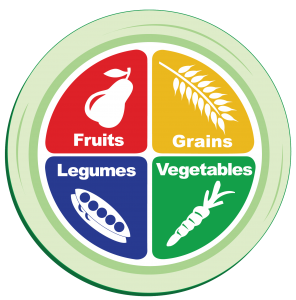
Alzheimer’s & Dementia
Flavonoids form Berries, Apples…..
Dietary flavonoids from berries, apples, and other plant-based foods help protect against Alzheimer’s disease and related dementia, according to a study published in the American Journal of Clinical Nutrition. Researchers reviewed diet record data and compared flavonoid intake and dementia incidence rates for 2,801 participants from the Framingham Heart Study Offspring Cohort. Those who had the highest total flavonoid intake from oranges, pears, strawberries, and other plant-based foods were 40% less likely to develop dementia when compared to those with the lowest intakes of flavonoid.
Reference: Shishtar E, Rogers GT, Blumberg JB, Au R, Jacques PF. Long-term dietary flavonoid intake and risk of Alzheimer disease and related dementias in the Framingham Offspring Cohort. Am J Clin Nutr. Published online April 22, 2020
Fruits and Vegetables Protect Against Cognitive Decline
Diets high in fruits, vegetables, pulses (beans, lentils, peas), and nuts protect against cognitive decline, according to a study published in The Journal of Nutrition, Health, & Aging. Researchers compared test scores in verbal fluency, a measure of cognitive decline, in participants in the Canadian Longitudinal Study on Aging (CLSA) and tracked dietary intake, socioeconomic status, and other covariates. Those who consumed more than 0.5 servings of pulses/nuts and more than 3 servings of fruits/vegetables per day scored higher on the cognitive tests, compared with those who had less. The authors call for policies to address food access and obesity and hypertension risk to improve risk factors.
Reference: Fuller-Thomson E, Saab Z, Davison KM, et al. Nutrition, immigration and health determinants are linked to verbal fluency among anglophone adults in the Canadian Longitudinal Study on Aging (CLSA). J Nutr Health Aging. 2020;24:672-680.
Soy Products Reduce Risk for Dementia
A metabolite produced in the gut from consuming soy products known as equol may reduce the risk for dementia, according to a study published in Alzheimer’s & Dementia. Researchers examined brain magnetic resonance imaging for white matter lesions associated with cognitive disease in 91 elderly participants and tracked serum equol levels. Those who produced more equol from dietary soy products had 50% fewer white matter lesions than those with lower equol levels. Japanese populations have more gut microbiota well-suited to produce soy metabolites, compared to Americans, due to higher consumption of dietary soy. Equol may improve dementia risk by improving arterial stiffness associated with white matter lesions in increased mitochondria function later in life.
Reference: Sekikawa A, Higashiyama A, Lopresti BJ, et al. Associations of equol-producing status with white matter lesion and amyloid-β deposition in cognitively normal elderly Japanese. Alzheimer’s Dement.. 2020;6:e12089-e12098
